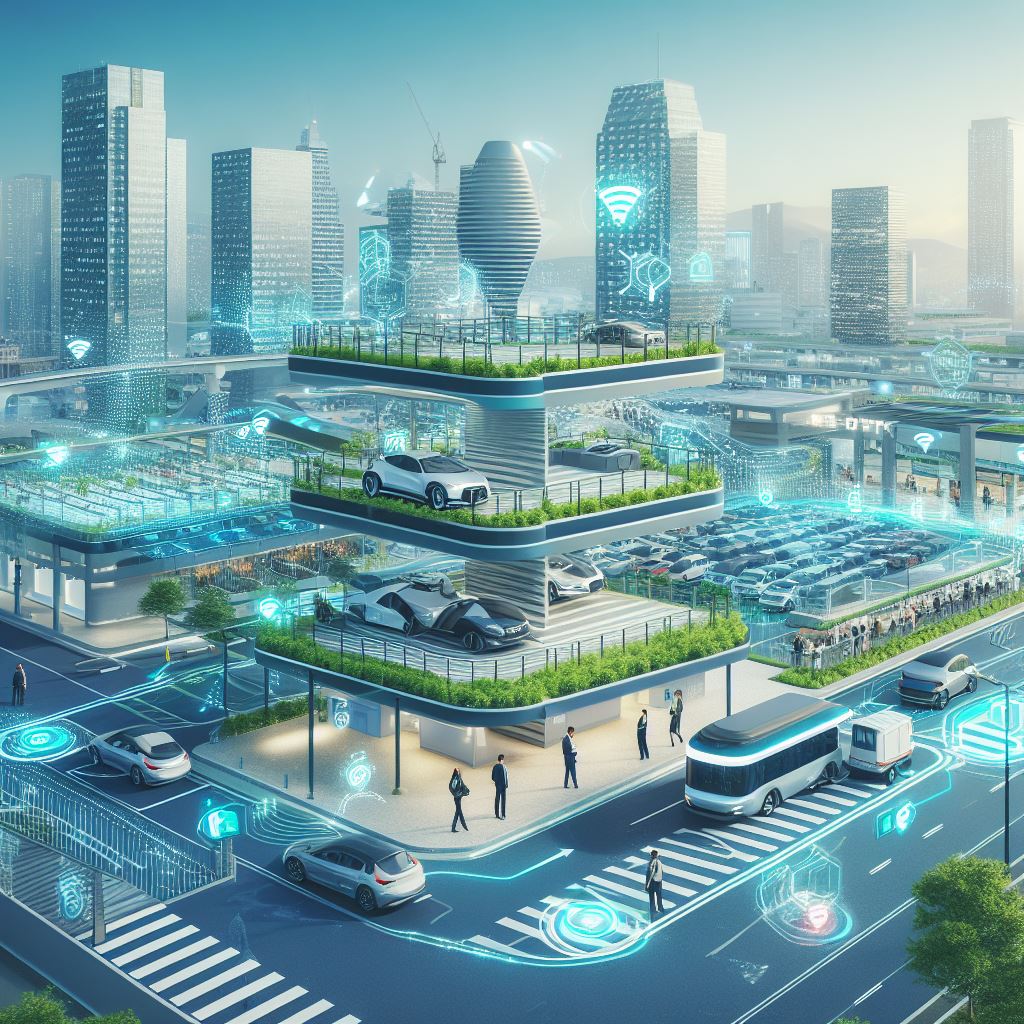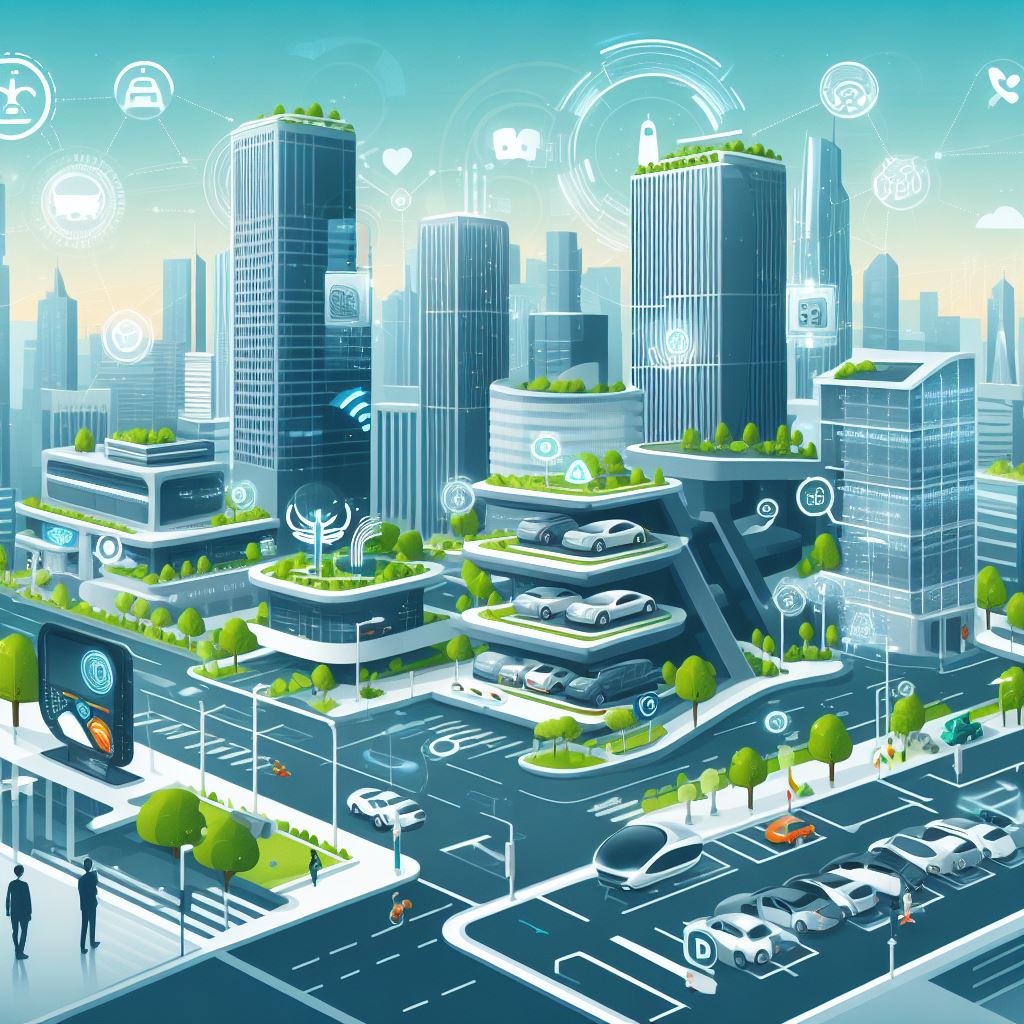
Smart Urban Parking: Solutions for Tomorrow's Cities
Urban parking challenges have become a pressing concern in today's rapidly urbanizing world. With increasing vehicle ownership and limited space, cities are grappling with congestion, environmental degradation, and inefficient parking management. This article delves deep into the innovative solutions that are paving the way for a more sustainable and efficient urban parking future.
Current Statistics on Urban Parking Challenges
- Rising Demand: Over 60% of urban residents express difficulty in finding parking spaces during peak hours.
- Environmental Impact: Approximately 30% of city traffic is attributed to drivers searching for parking, contributing significantly to carbon emissions.
- Economic Implications: Urban businesses report a 20% decrease in footfall due to parking issues.
"The urban parking crisis is not just about space; it's about time, money, and the environment." - Jane Doe, Urban Planner
Case Studies: Cities Leading the Way
San Francisco's SFpark
San Francisco introduced SFpark, a dynamic pricing system for parking. Using real-time data, prices adjust based on demand, ensuring optimal utilization of parking spaces. This has led to:
- A 50% reduction in the search time for parking.
- A 30% decrease in vehicle emissions in pilot areas.
Barcelona's B:SM
Barcelona's B:SM system integrates parking with other urban services. With multi-use parking structures, they accommodate cars, bicycles, and even logistics distribution centers, showcasing a holistic approach to urban vehicle storage.
Technological Advancements in Parking Management
Smart Parking Systems: These systems use sensors and real-time data to provide drivers with available parking spots, reducing search time and traffic congestion.
Intelligent Parking Meters: These meters adjust pricing based on demand, encouraging turnover and optimal space utilization.
Mobile Apps: Apps like ParkMe and SpotHero allow users to reserve and pay for parking in advance, ensuring a hassle-free experience.
Environmental and Economic Impacts
- Reduced Emissions: Efficient parking management can reduce the time spent searching for parking, leading to fewer emissions.
- Economic Boost: Businesses benefit from efficient parking strategies as they attract more customers.
- Land Optimization: Sustainable parking strategies can free up land for other urban needs like parks and recreational areas.

Benefits of Smart Parking Systems
- Efficiency: Optimizes the use of available spaces.
- Cost-effective: Reduces the need for building new parking structures.
- User-friendly: Provides a seamless experience for drivers.
- Data-driven: Offers valuable insights for urban planners and developers.
Future Trends in Urban Parking Solutions
- Autonomous Parking: With the rise of autonomous vehicles, parking solutions will evolve to accommodate self-parking cars.
- Green Parking: Incorporating green spaces and sustainability into parking designs.
- Shared Parking: Leveraging underutilized parking spaces during off-peak hours for other purposes.
Conclusion
The challenges of urban parking are undeniable, but with technology-driven parking management and sustainable urban parking strategies, there's hope on the horizon. As cities continue to grow, it's imperative for stakeholders, from government officials to the general public, to understand and advocate for innovative solutions. The future of urban parking is not just about accommodating vehicles; it's about creating livable, sustainable, and efficient urban environments.
The Day Parking Found Its PulseIn the heart of bustling Metroville, Sarah, a young urban planner, faced a challenge that seemed insurmountable. Every day, she watched from her office window as cars circled the blocks endlessly, drivers' faces etched with frustration. The city's heartbeat was irregular, disrupted by the constant search for parking. One evening, as Sarah sat in a local café, she overheard a conversation between two elderly residents, Mr. and Mrs. Rodriguez. They spoke of a time when the streets of Metroville were alive with children playing and neighbors chatting. Now, those streets were choked with traffic, the air heavy with emissions, and local businesses suffering. Inspired, Sarah began researching innovative urban parking solutions from around the world. She learned about San Francisco's dynamic pricing system and Barcelona's multi-use structures. The more she delved into the topic, the clearer the solution became. Sarah proposed "PulsePark" to the city council. It was a smart parking system that used real-time data to guide drivers to available spots, reducing search time and emissions. Multi-use structures would accommodate cars, bicycles, and even pop-up shops. Green spaces would be integrated into parking designs, bringing back the lost greenery of Metroville. The proposal was met with skepticism. "It's too ambitious," some said. But Sarah was undeterred. She organized community meetings, sharing stories like that of the Rodriguez couple and presenting data on the environmental and economic benefits of PulsePark. The turning point came when a local tech company developed an app that allowed residents to visualize Sarah's proposal. People could see a virtual Metroville with PulsePark in action. The app showed reduced traffic, green spaces, and efficient parking structures. It was a revelation. With public support behind her, the city council approved PulsePark. Over the next two years, Metroville transformed. The streets breathed easier, businesses thrived, and children once again played in green spaces. One sunny day, Sarah revisited the café and saw Mr. and Mrs. Rodriguez. They were seated outside, enjoying the fresh air. "You brought back the pulse of Metroville," Mr. Rodriguez said, his eyes glistening. Sarah smiled, looking at the rejuvenated city. Metroville's heartbeat was strong and steady, all thanks to a vision that saw parking not as a problem, but as a solution waiting to be discovered. |


